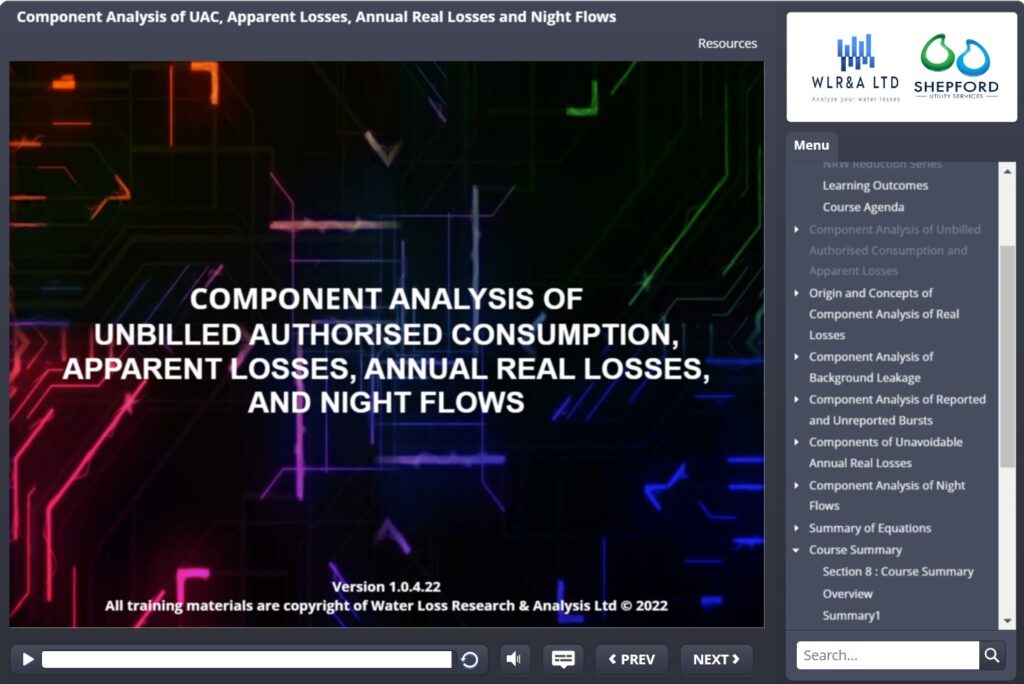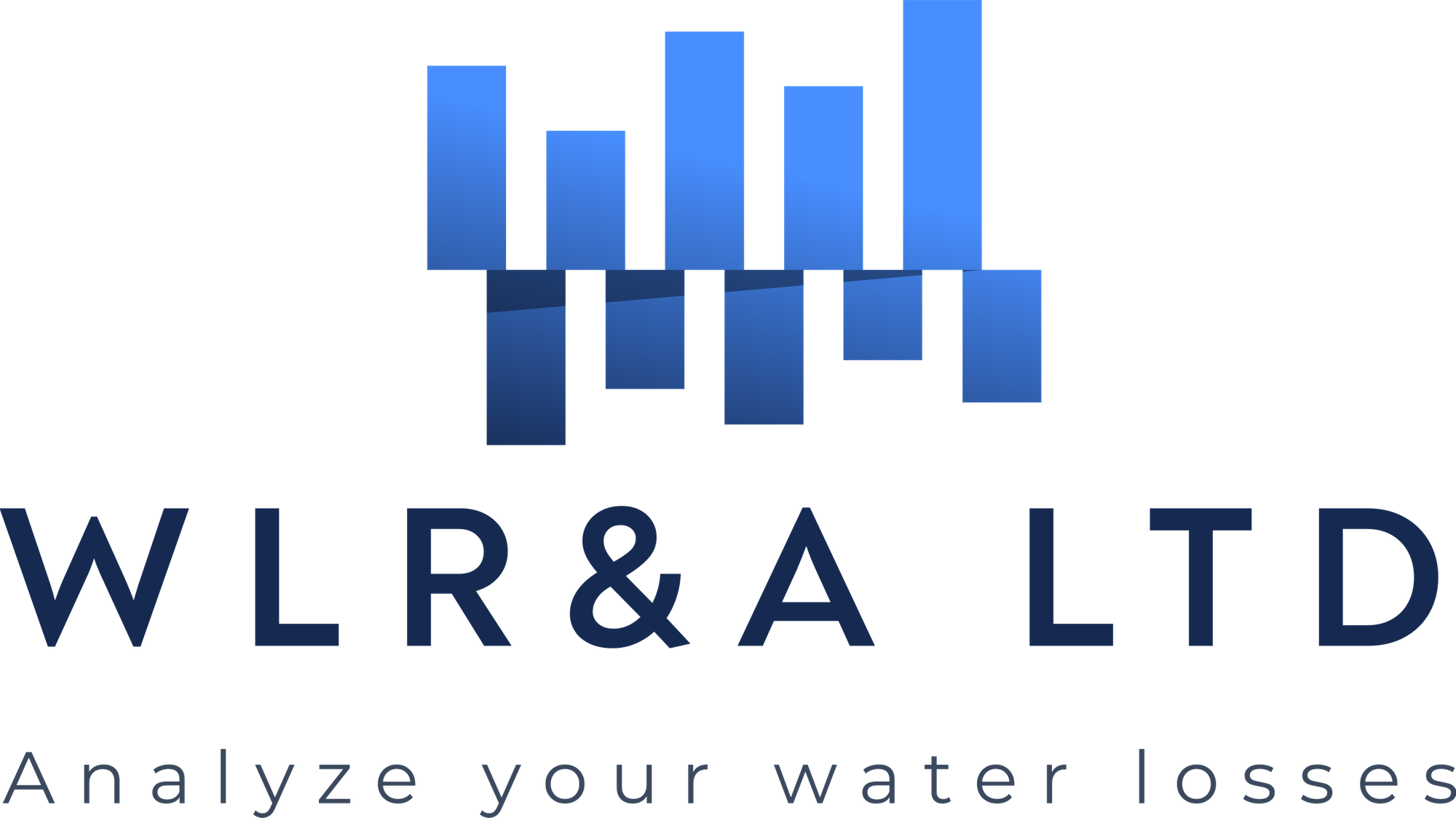Analytical Software and Online Training to understand your Water Losses
uarl with system correction factor (scf)
SET CUSTOMISED ZONAL UARL TARGETS
Each DMA or zone within a whole system has a set of unique characteristics that influence its Unavoidable Annual Real Losses (UARL) volume.
Use UARL with System Correction Factor (UARL with SCF) to calculate Maximum Recoverable Leakage volumes for DMAs, zones and whole systems, taking into consideration the influences of different pipe materials (using the FAVAD concept), system size and the pressure:bursts relationship.
IDENTIFY ALC AND PRESSURE MANAGEMENT OPPORTINITIES
Use the results of a UARL with SCF calculation to set more appropriate UARL targets, pinpoint where Active Leakage Control will bring most reductions in UARL volumes, and quantify UARL volume and burst reductions from pressure management.

N1 TRIAGE

IDENTIFY WHICH ZONES AND DMAS WOULD BENEFIT FROM AN N1 TEST
N1 Triage reports on where N1 tests are advisable, prioritising those zones which would benefit most from an N1 test
n1 calc
CALCULATE AN N1 AT AVERAGE ZONE PRESSURE (AZP) FROM AN N1 TEST
N1 is not a constant, but varies over a range of pressures.
Use N1Calc to calculate an N1 at AZP value, and unlock the relationship between N1 and AZP for each zone or DMA


New software products in development for 2025
QuickBurst will rapidly assess, predict and prioritise zones for pressure management with separate assessment of mains and services
ILI Sage – would you like to calculate an ILI, but are unsure of your Average Zone Pressure? ILI Sage can help.
Non-revenue water reduction online training

BUILD KNOWLEDGE AND SKILLS
Our online training courses are designed to help you understand the fundamental concepts and principles of non-revenue water reduction, adding valuable knowledge and skills to your whole team.
Learn at your own pace, online or offline, from your desktop, laptop or mobile.
Basic, Intermediate and Advanced level curriculums have been authored in partnership with Allan Lambert
The Basics curriculum is ideally suited to apprentices and new leakage analysts. This Basics knowledge is then developed further in the Intermediate and Advanced Curriculums.
